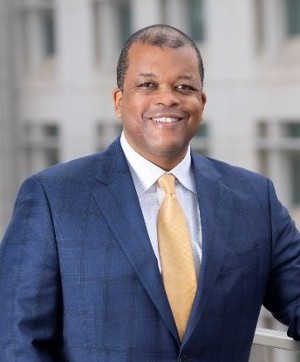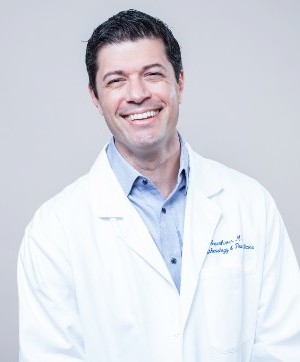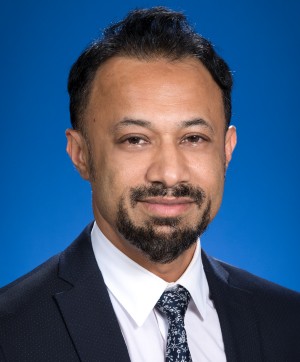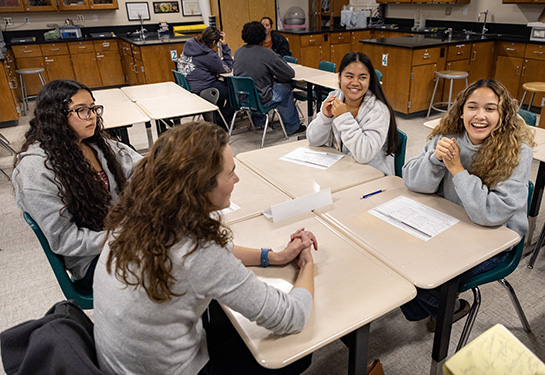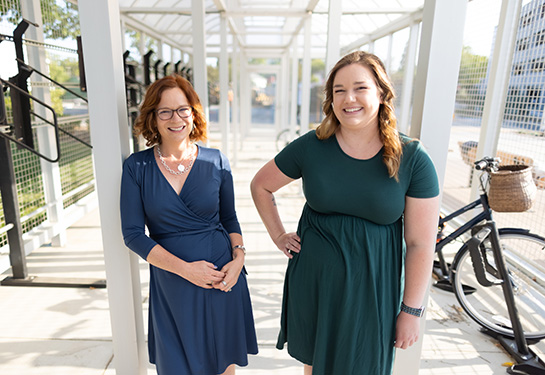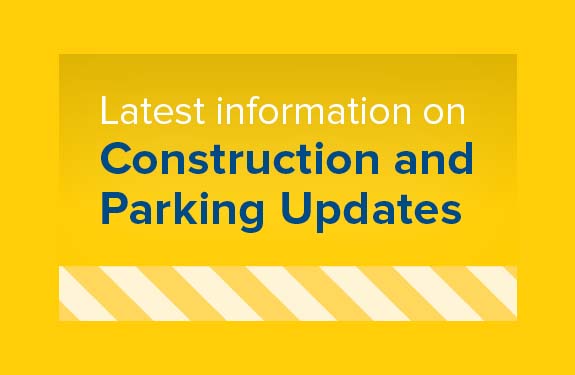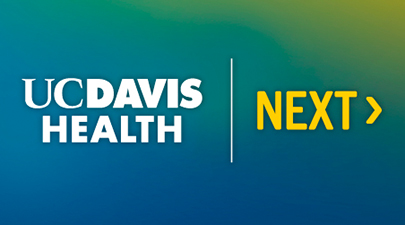6 LEAD Program grads share top leadership lessons
The inaugural class of UC Davis Health's LEAD Program celebrated their graduation last Friday, May 5 on the main campus. Short for Leadership and Executive Administration Development, LEAD is a six-month program for mid-career and senior faculty to expand their skills and knowledge in the business of health care. The aim is to help prepare physicians invested in becoming CEOs or academic leaders in a health system.
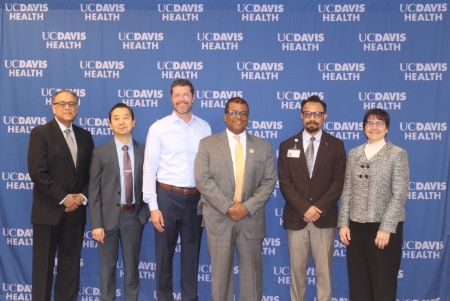
Participants attended twice-monthly sessions where they engaged with UC Davis Health instructors, including Vice Chancellor and CEO Dr. David Lubarsky, and gained critical thinking skills, a broader understanding of the landscape around the health care enterprise, experiential learning opportunities at a high level, and focused mentorship.
Next year's LEAD Program will begin accepting applications in early fall 2023.
Here, the class of six graduates shares their top takeaways, hopes, and resources during their months of study.
David Tom Cooke, M.D., F.A.C.S., Department of Surgery
What was your most valuable takeaway from the LEAD Program? The LEAD Program was an amazing opportunity. The curriculum enriched my understanding of UC Davis Health, the current state of healthcare, and equipped me with new skills to develop, implement, and lead strategies that will improve the health and wellbeing of our communities.
What is one positive idea or hope you have for UC Davis Health as a result of LEAD? Lessons learned from the LEAD program have me well positioned in my current role as co-physician lead for the nascent Lung Cancer Integrated Service Line (ISL), a multidisciplinary effort to streamline the journey of patients at risk for and diagnosed with lung cancer. This will include: 1) a Lung Cancer – Lung Nodule Early Detection (Lung-LEAD) clinic that leverages the innovative and forward-thinking principles of “Digital Davis,” 2) efficient and patient-centered patient care coordination and navigation, and 3) a long-term supportive lung cancer survivorship clinic.
What is your favorite leadership book? A particular resource the resonated with my long-standing interests and research in patient-centered care and patient activation is Compassionomics: The Revolutionary Scientific Evidence That Caring Makes a Difference, by Stephen Trzeciak and Anthony Mazzarelli. The authors present examples that demonstrate how compassion can lead to better patient outcomes, increased satisfaction, and reduced burnout among healthcare professionals. They argue that cultivating a culture of empathy and kindness in medicine is not only morally important but also economically beneficial. These are our goals at UC Davis Health.
David Copenhaver, M.D., M.P.H, Department of Anesthesiology and Pain Medicine
What was your most valuable takeaway from the LEAD Program? Leadership is a true science with identifiable skills that can be readily applied to any variety of circumstances. These skills encompass cultivating and honing a sense of self awareness, considering and evaluating others’ opinions, and approaching leadership from a central space of humility.
What is one positive idea or hope you have for UC Davis Health as a result of LEAD? UC Davis Health is on a visionary path to reimagine healthcare. The process of reimagining how human beings care for each other involves innovation, technology, and novelty, but is not mutually exclusive of compassion and empathy, the central principles that guide and motivate our efforts.
What is your favorite leadership book? I thoroughly enjoyed Think Like a Monk, by Jay Shetty. Shetty recommends reframing one’s thoughts and finding comfort and solace in service. Simple yet profound.
Mithu Molla, M.D., M.B.A., F.A.C.P., Division Chief, Department of Internal Medicine
What was your most valuable takeaway from the LEAD program? The LEAD program provided greater context of our health system’s role in the community through multiple prisms: from labor relations to how we interact with government entities to implementing strategies in diversity, equity, and inclusion. Marrying invaluable executive perspectives with Dr. Lubarsky’s personalized leadership growth strategies (negotiating effectively or navigating the political landscape) and shared experiences from my colleagues created the perfect classroom for continued reflection and leadership growth long after graduation from the program.
What is one positive idea or hope you have for UC Davis Health as a result of LEAD? After experiencing all the efforts, thoughts, and planning that are taking place at the executive level, I feel a renewed sense of purpose towards pursuit of our clinical strategic plan. I see the impact that each of us can make and the importance of pushing ourselves both individually and as an organization towards our collective goals to fulfill those strategic priorities. I am excited to continue collaborating with my colleagues and friends in the inaugural LEAD Program to serve our health system.
What is your favorite leadership book? My favorite book is full of pearls of wisdom that one can apply at any stage of their career and leadership trajectory: Getting to Yes, by Roger Fisher and William Ury.
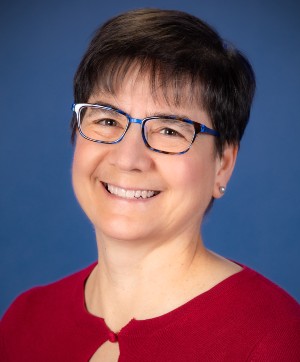 JoAnne Natale, M.D., Ph.D., Vice Chair for Quality and Safety, Department of Pediatrics
JoAnne Natale, M.D., Ph.D., Vice Chair for Quality and Safety, Department of Pediatrics
What was your most valuable takeaway from the LEAD program? Learning about the multiple resources available to assure UC Davis Health achieves “tomorrow’s health care today” for all.
What is one positive idea or hope you have for UC Davis Health as a result of LEAD? Building on the compassion, innovation, and hard work of our UC Davis Health family, and extending our reach in the region to serve more families and their children.
What is your favorite leadership book? My favorite leadership book from LEAD is Compassionomics, by Trezeciak and Mazarelli. Their use of compelling scientific evidence demonstrates the health benefits of compassion for people who receive and those who provide health care. Compassion in health care is a value no-brainer.
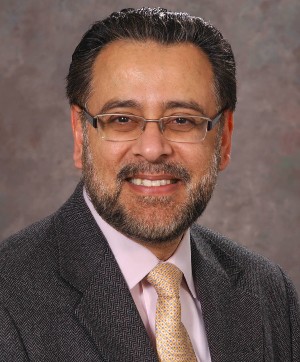 Ramit Lamba, M.D., Department of Radiology
Ramit Lamba, M.D., Department of Radiology
What was your most valuable takeaway from the LEAD program? As you ascend in your leadership and academic career, it is important to shift your mindset from being a division or department level problem solver to a system level thinker and problem solver.
What is one positive idea or hope you have for UC Davis Health as a result of LEAD? The health system leadership's willingness to engage faculty leaders who traditionally lead teams in the trenches, commit to their further growth, and provide an opportunity to hear about the challenges (and possible solutions) they see/face from their unique positioning.
Who is your leadership role model or your favorite leadership book? There was honestly no contest for Dr. Lubarsky’s charismatic and engaging leadership style (stays unmatched), but I was also touched by the authenticity of Dr. Hendry Ton. While I have not finished reading all the leadership books that were provided in this course, I did read Dr. Lubarsky’s recommended book Getting to Yes and I found that to be extremely helpful. I would also like to extend a personal thanks to Dr. Colleen Clancy, who has been a strong supporter, sponsor, coach, mentor, and friend.
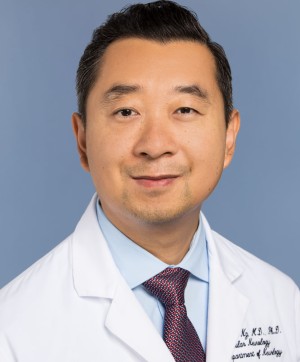 Kwan L. Ng, M.D., Ph.D., Department of Neurology
Kwan L. Ng, M.D., Ph.D., Department of Neurology
What was your most valuable takeaway from the LEAD program? The depth and complexity in decision making on an enterprise level is inspiring.
What is one positive idea or hope you have for UC Davis Health as a result of LEAD? Clinical care and equity remain driving forces for innovation and growth.
Who is your leadership role model? Dr. Lubarsky

